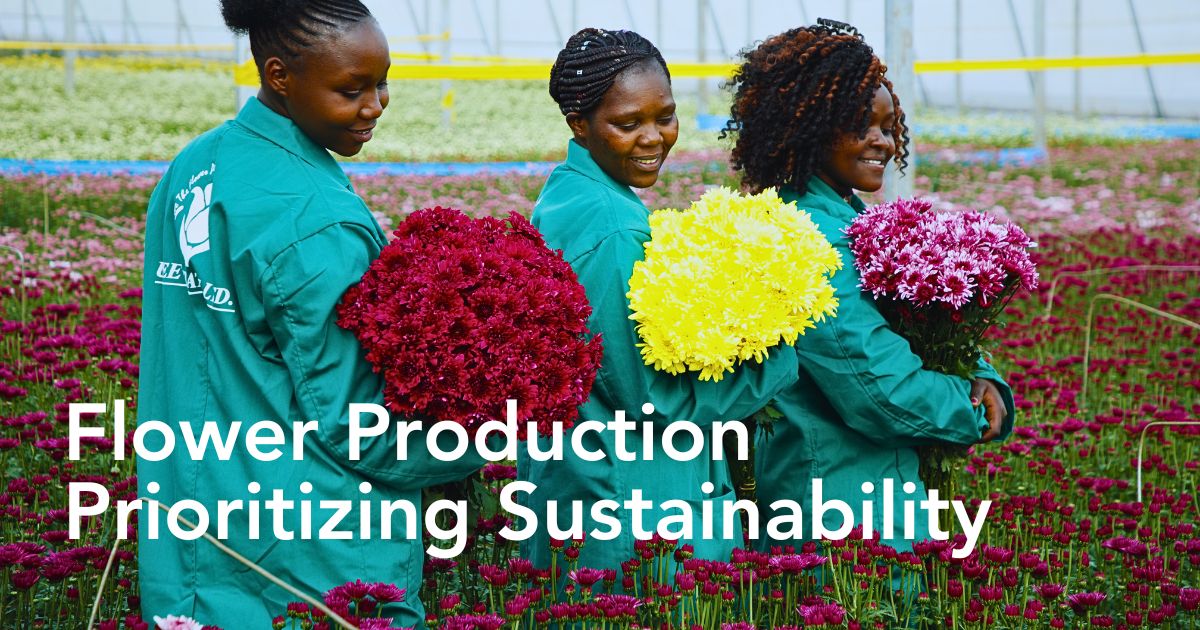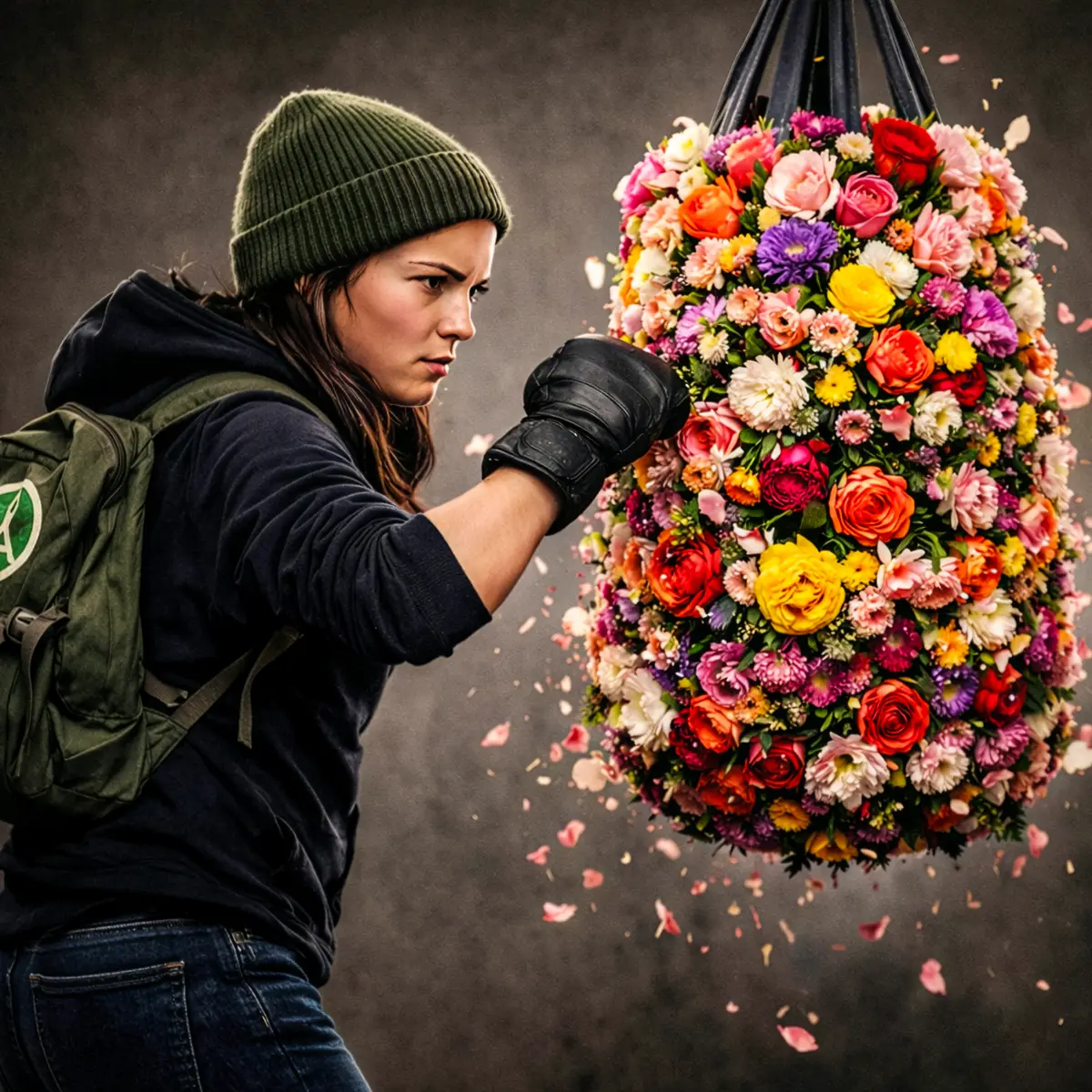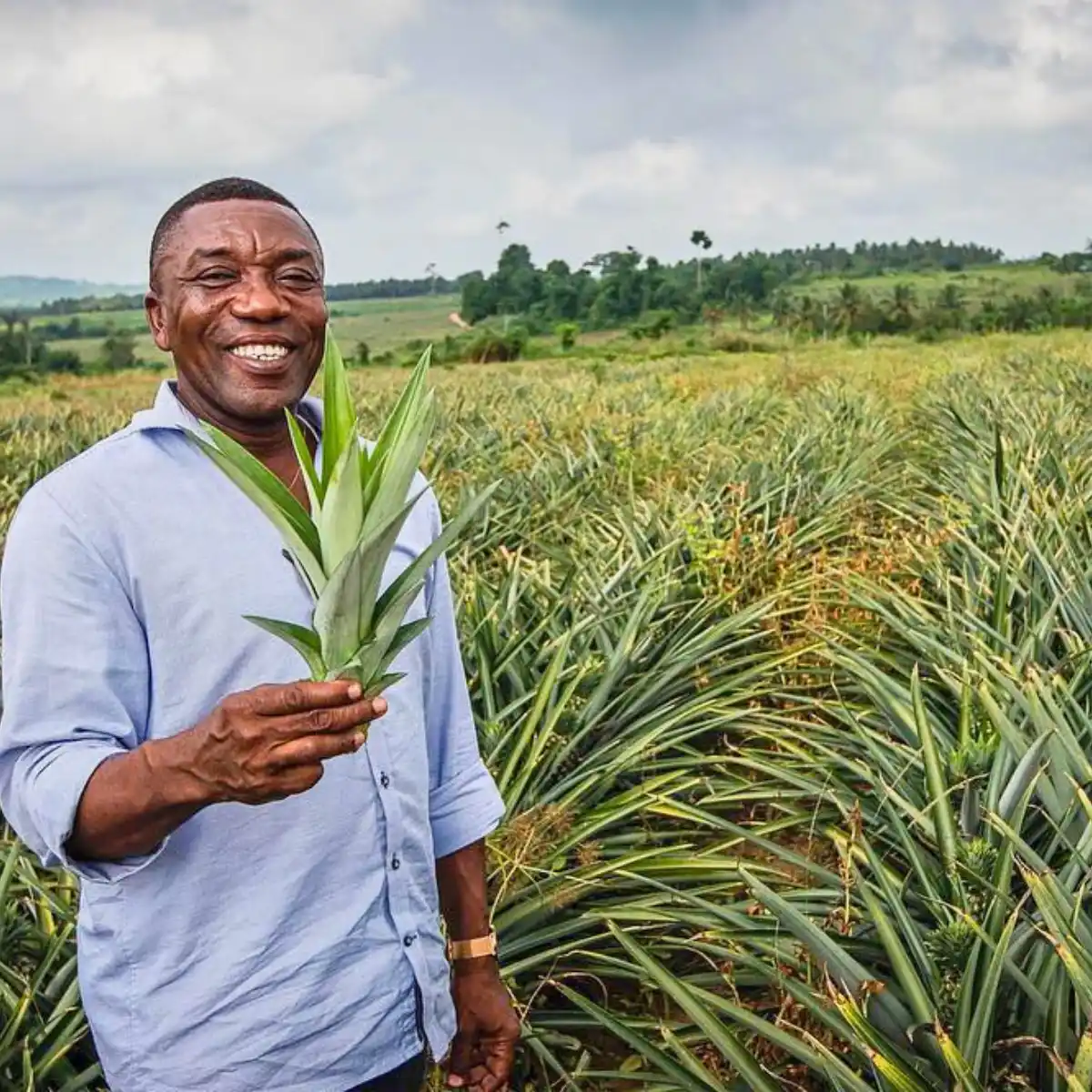At an altitude of 2100 meters, in the Limuru region, just outside Kenya’s capital, Nairobi, flower producer Nelion Flora Ltd—formerly Utee Estate—has, over the past decade, been reforming its flower-growing practices, an effort based on the idea that sustainability is as good for the planet as it is for business. Nelion Flora, a member of Black Tulip Group, has transitioned from not just meeting Fairtrade Standards but also pioneering climate-smart flower farming practices that prioritize soil health, employee safety, and environmental conservation.
From Standards Compliance to Sustainability Innovation
For Nelion Flora Ltd, it all started with Fairtrade certification. This decision was just straightforward: complying with the Fairtrade Standards meant avoiding certain harmful substances in their flower farming and production processes, such as highly hazardous pesticides and chemicals. This compliance formed the basis of their sustainable practices and climate-smart cultivation methods.
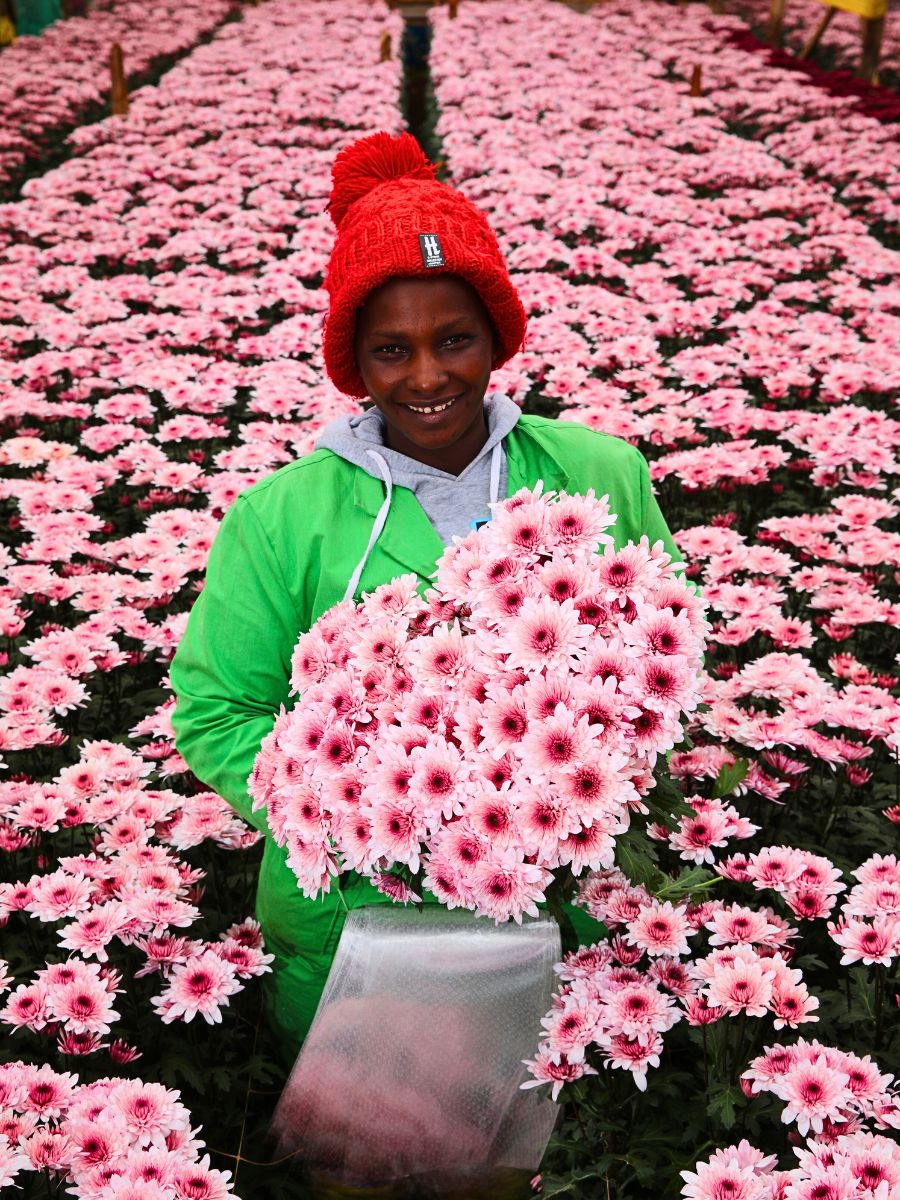
As Mohan Choudhery, the CEO of Black Tulip Group, Kenya, notes, instead of relying on synthetic fertilizers and pesticides, Nelion Flora developed its own biological alternatives. A small on-farm laboratory—nicknamed the ‘test room’—became (and continues to be) the center of experimentation. Here, mixtures of local herbs, fertile soil, ginger, pepper, and the manure and urine from cows are carefully prepared and tested.
Mohan Choudhery:
“Our current focus on biological pesticides and fertilizers has been stimulated by the Fairtrade Standards, which banned the use of several pesticides harmful to workers and the environment.”
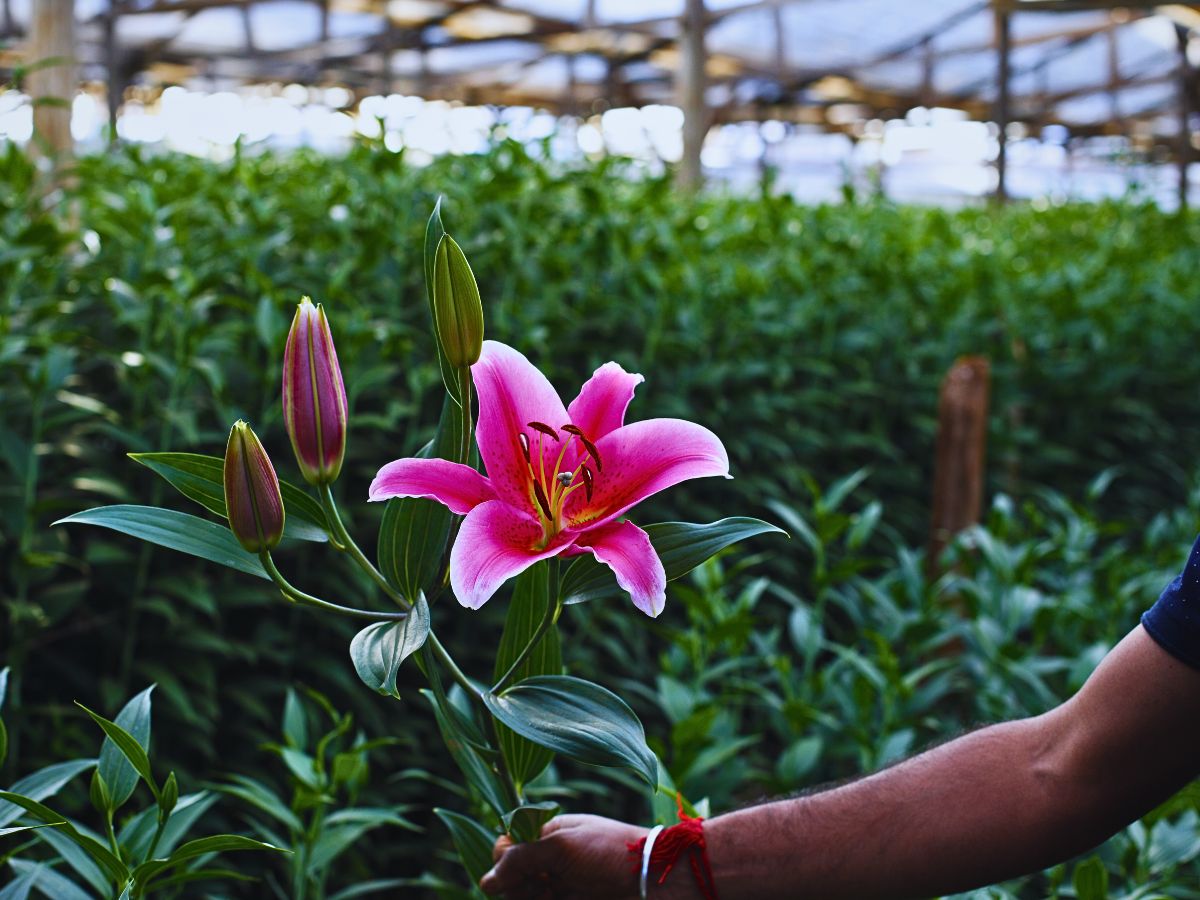
At first, the producer drew inspiration from its cattle. Essentially, these cattle were onto something. The workers noticed that cows consistently avoided certain herbs while grazing. And what seemed like picky eating habits gave them the realization that would transform their entire flower operations when it comes to pest control, since the herbs that the cows refused to eat while grazing turned out to be effective in repelling pests.
The team began systematically testing combinations of the local herbs, fertile soil, ginger, pepper, and organic matter from their own cattle. Each mixture was prepared, tested, and refined until it developed solutions that protect flower crops and also actually strengthen both the plants and the soil. Thus, in their combination of these plants and other natural matter, with fertile local soils rich in beneficial bacteria, the team managed to create powerful bio-pesticides and fertilizers that strengthen the crop and the soil at the same time.
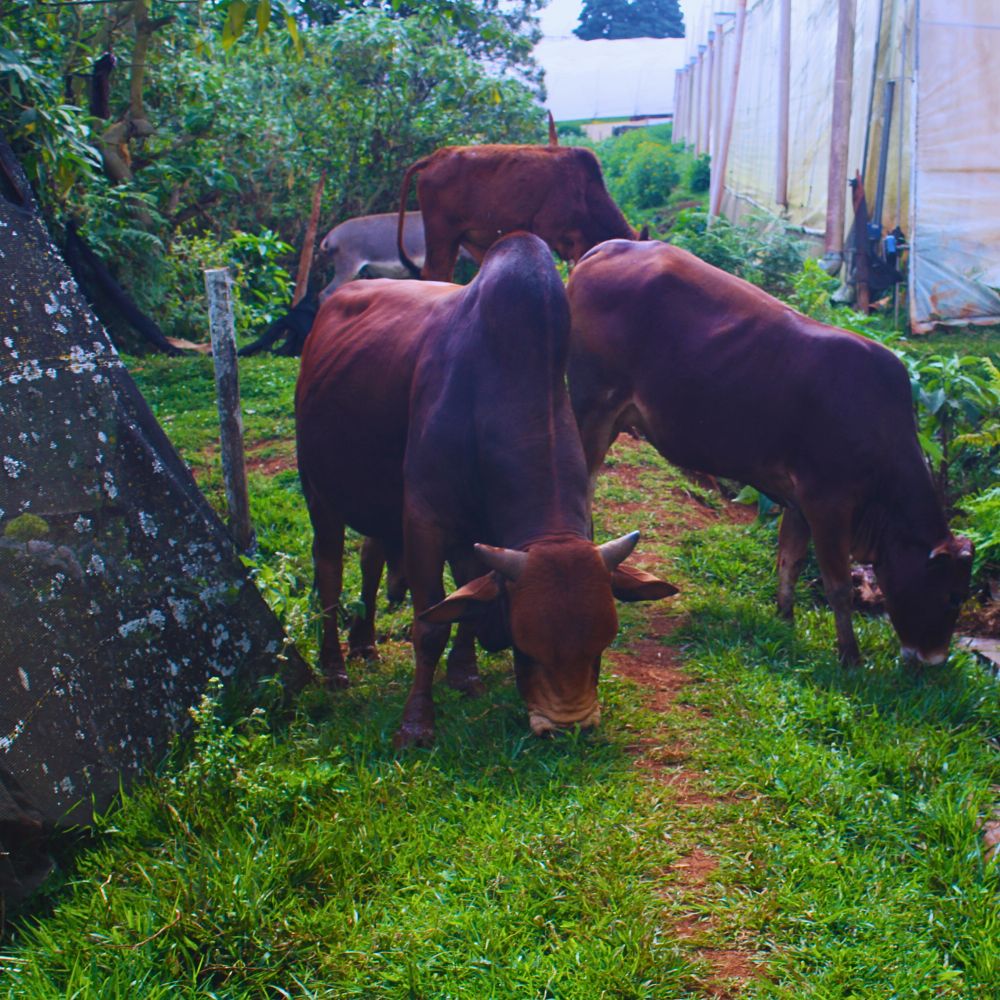
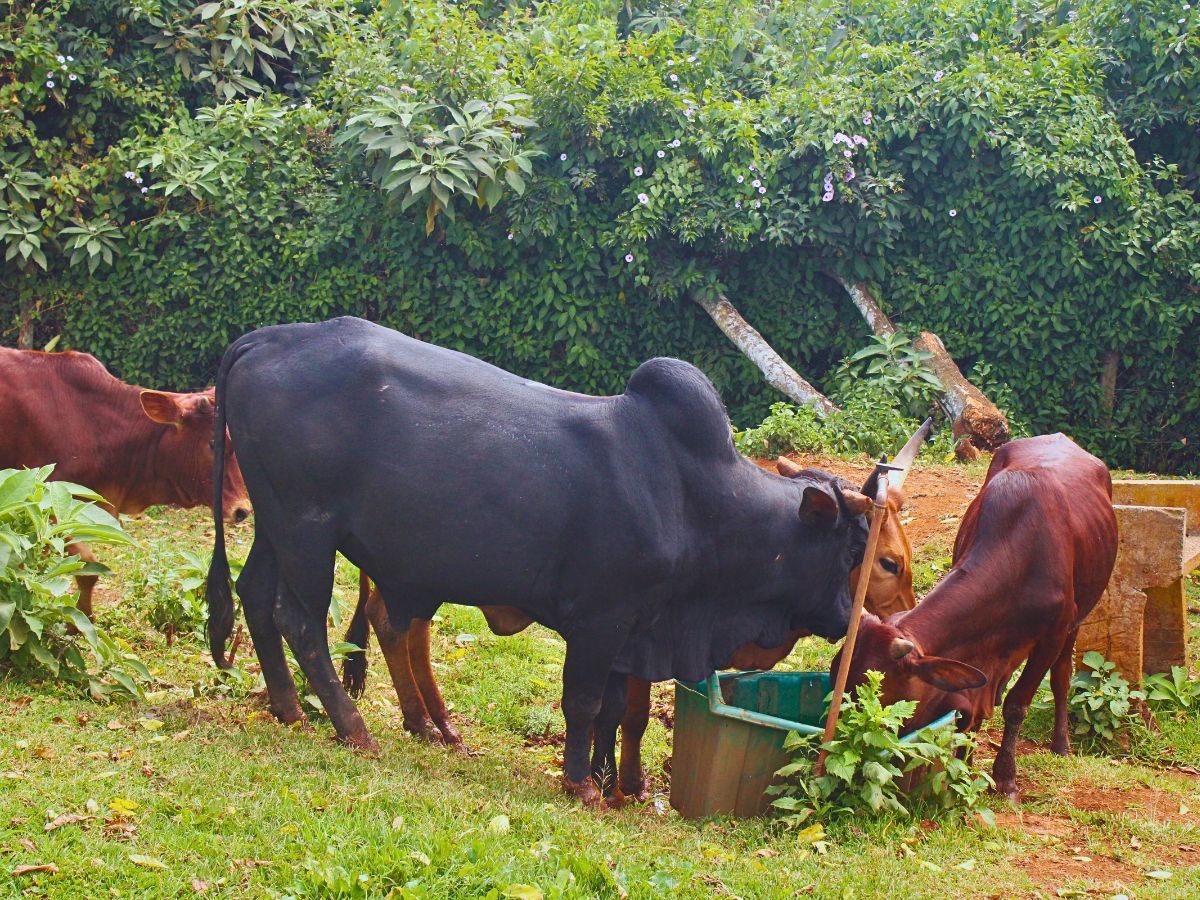
The Results Speak for Themselves
The results mattered, and continue to. The results speak for themselves. Today, the soils are much healthier, with organic matter levels now exceeding 5%, boosting fertility, water retention, and microbial life. This is not just a number on a report, but represents thriving underground ecosystems that support healthier plants and create natural resilience against climate extremes. Fertilizer consumption has also plummeted, significantly reducing both costs and environmental impact.
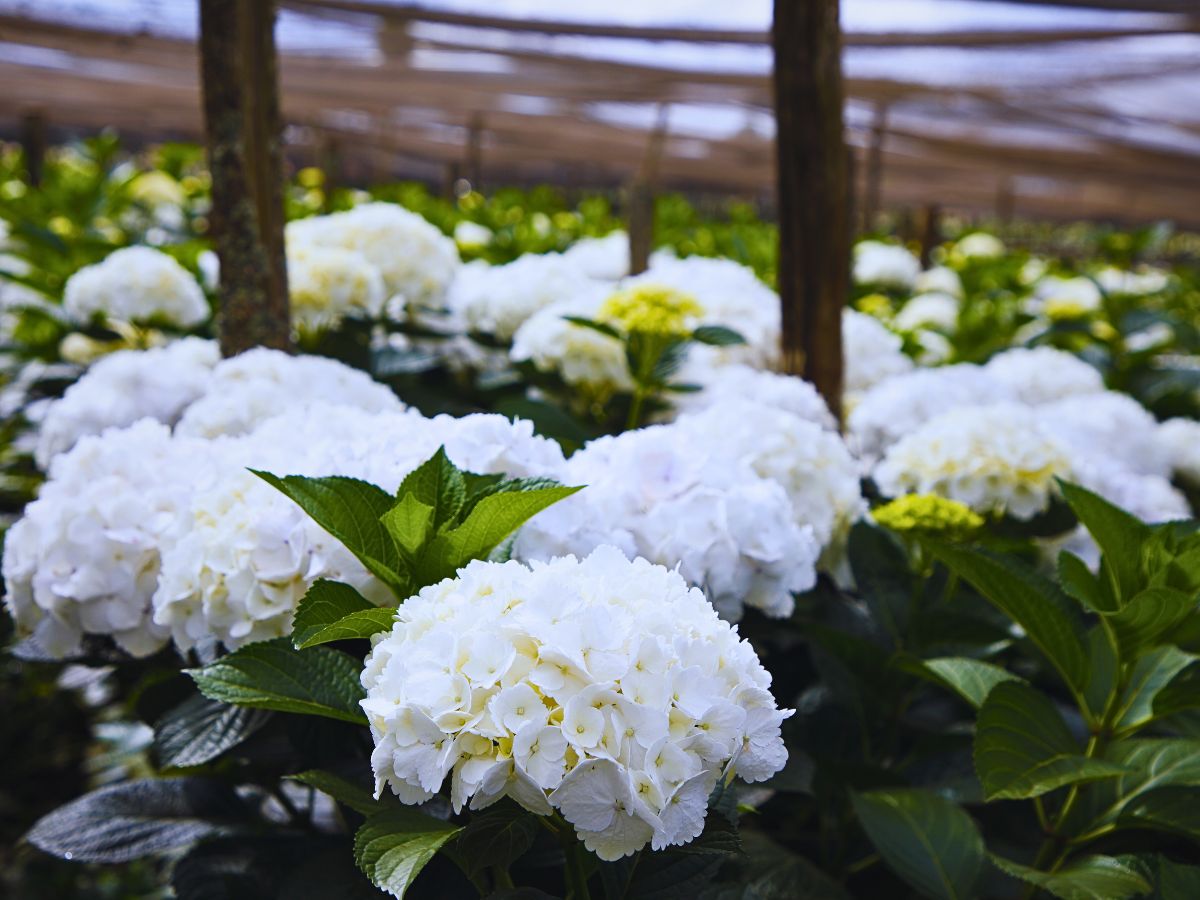
Likewise, fewer chemicals used means less environmental impact and healthier ecosystems, thus climate resilience for the grower. And, most remarkably, flower quality has remained consistently high while pest pressure has actually decreased—healthier plants, it turns out, are simply less attractive to insects. The icing on the cake has been worker wellbeing. Employees now work in safer conditions, free from exposure to hazardous pesticides.
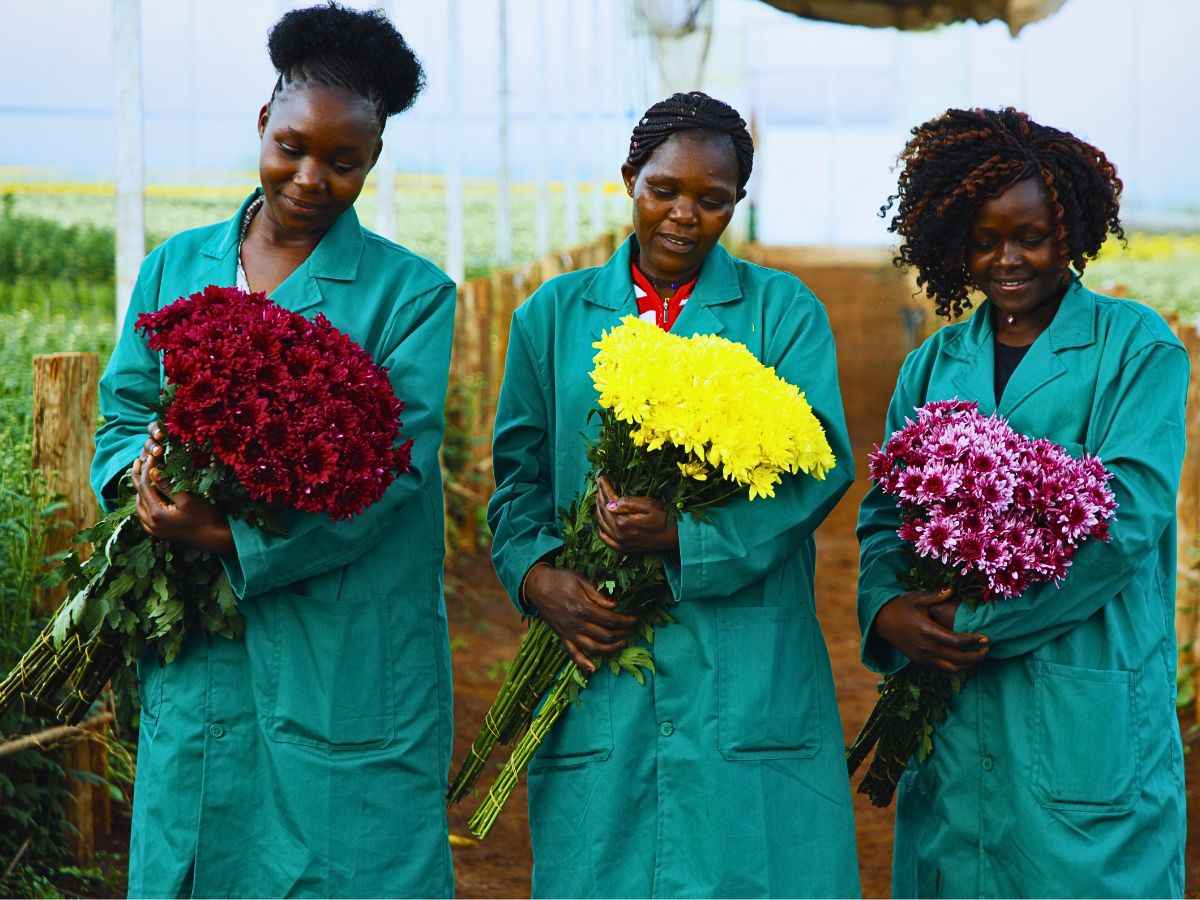
As Mohan Choudhery notes:
“Minding the climate turned out to be a win-win situation: with bio-pesticides, the flowers became far less attractive to insects, our fertilizer consumption has fallen sharply, soil health improved with more than 5% organic content, and our employees now work in healthier conditions.”
Much of this shows that, like all Fairtrade-certified farms, Nelion Flora maintains and ensures strict safety protocols for workers. The 10% Fairtrade Premium received for every stem sold goes directly into employees' essentials, supplementing their income, and benefiting the communities where they live.
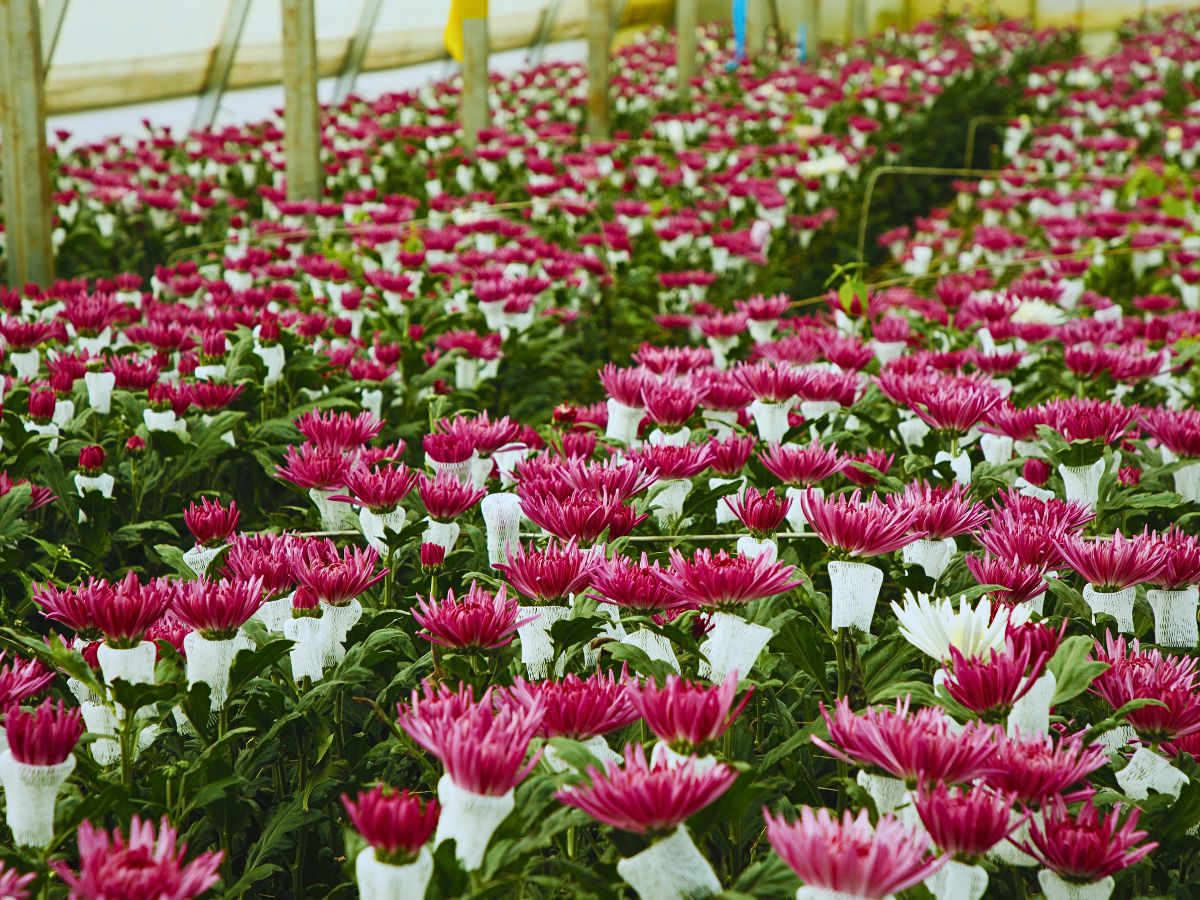
Challenges Along the Way and Overcoming the Growing Pains
But this transformation was not without its growing pains. The main hiccup was not technical, but rather psychological. For many agronomists—trained to expect quick results from synthetic inputs—the biggest challenge was a change of mindset. Developing bio-based practices required patience, training, and capacity building. Thus, they had to completely rewire their thinking because biological systems require patience. They need time to establish, time to prove themselves, and time to deliver results.
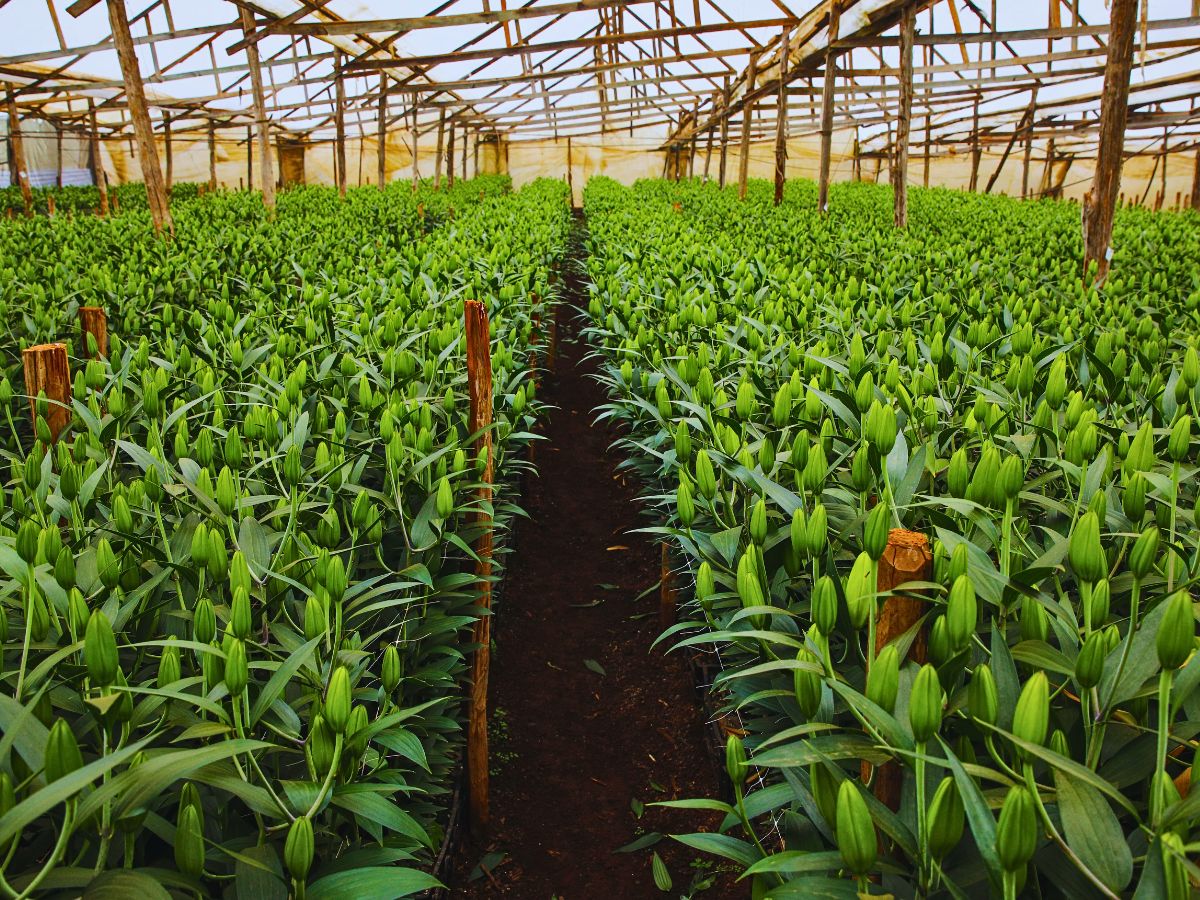
There were also periods of production loss as the farm fine-tuned its biological protocols. The learning curve was steep. Sessions of continuous training and open internal discussions became the norm. Strategic collaborations and partnerships with bio-input companies also provided technical expertise that helped bridge knowledge gaps. Gradually, the initial skepticism gave way to enthusiasm as results began to speak for themselves. Louder than the theories. All these played a part in overcoming the initial obstacles.
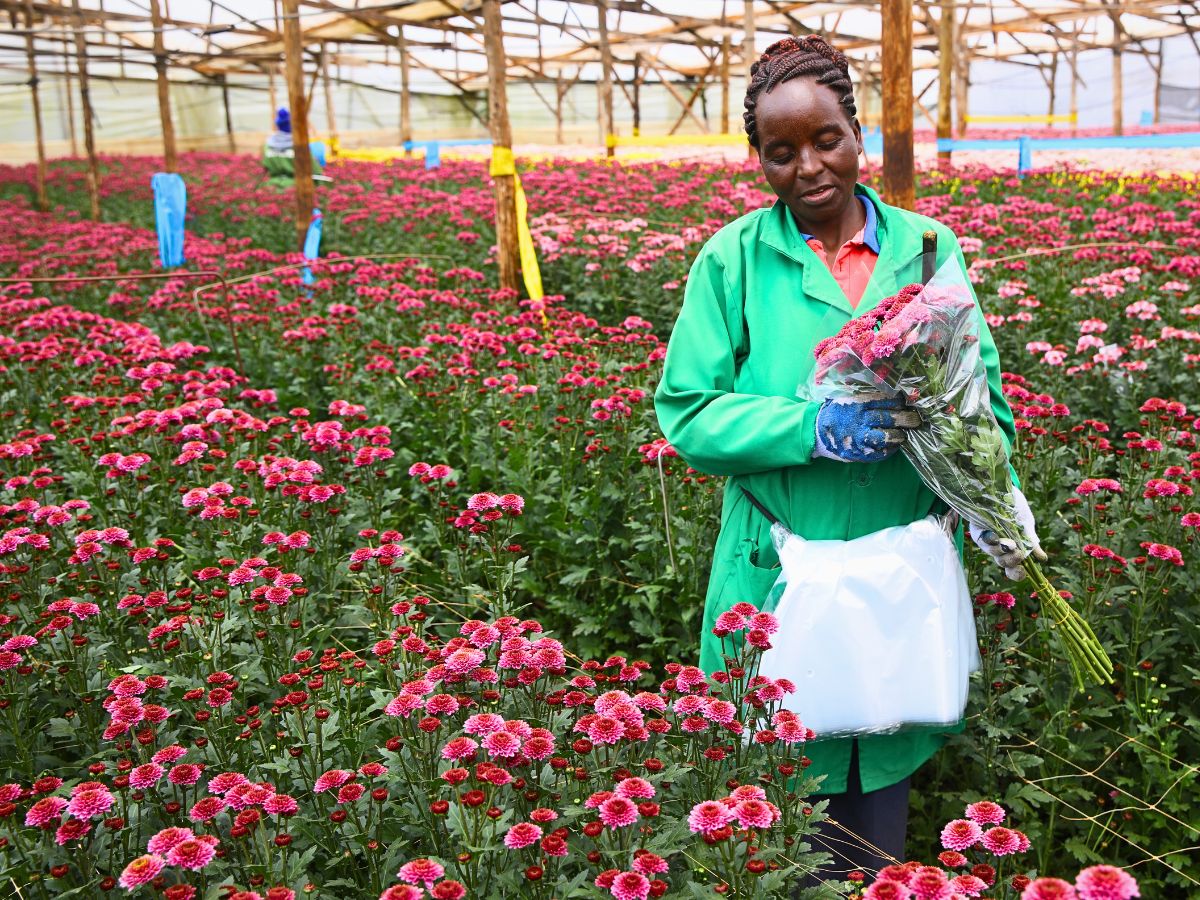
Redefining Industry Standards
For all its efforts, Nelion Flora has today replaced nearly half of its synthetic pesticides with home-made biological alternatives, and they are not stopping there, as each success builds self-confidence for the next experiment. The farm has, essentially, turned into an innovation hub, where all sustainable practices happen as part of daily operations and not in isolation. And with 100% commitment to worker health and climate resilience, the flower producer remains keen on continuing the journey towards healthier flowers, healthier soils, and a happier workforce.
The story of Nelion Flora is made particularly convincing by how it challenges some industry assumptions. While the conventional flower business initially operated on the belief that one had to choose between responsible environmental practices and commercial success, Nelion Flora's decade-long approach proves otherwise. Their flowers compete successfully in international markets while their workers enjoy safer working conditions, free from exposure to hazardous chemicals.
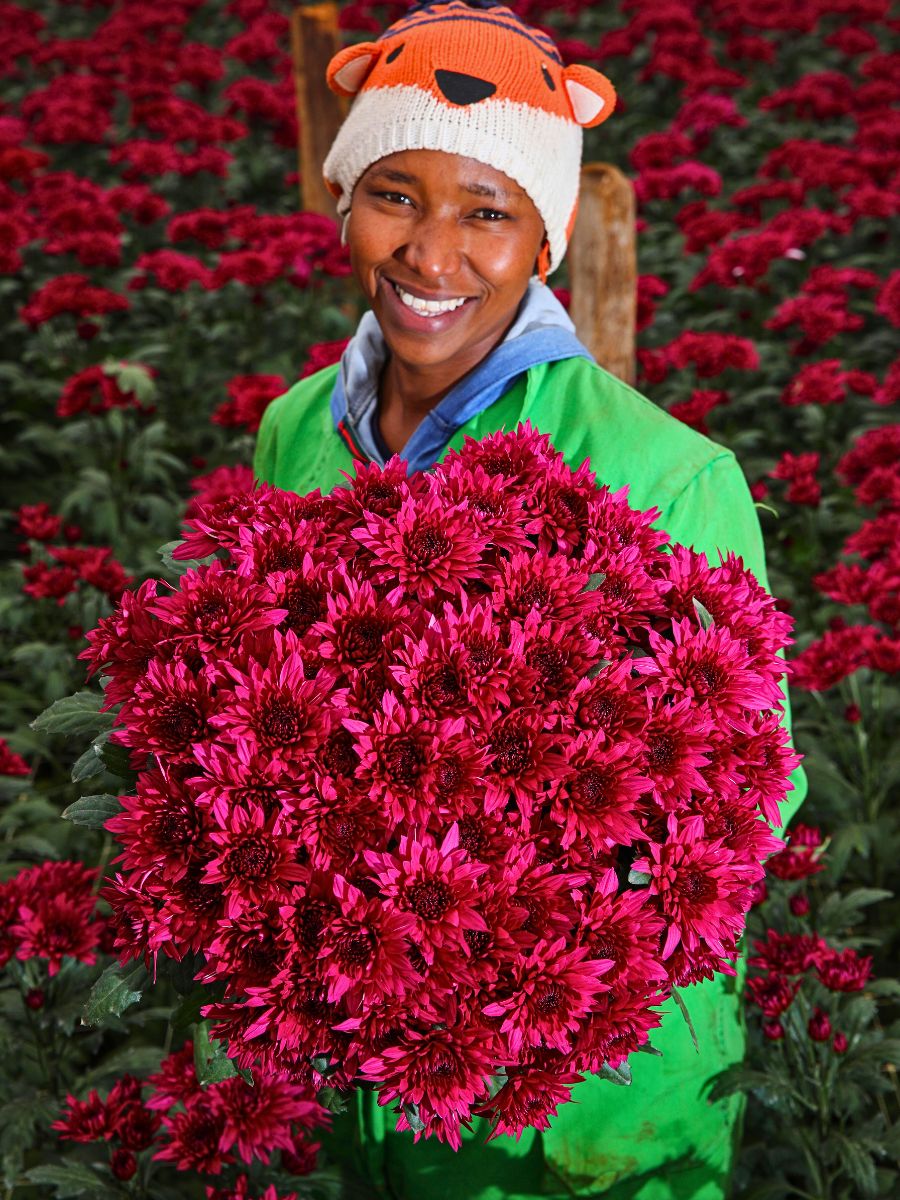
The innovative approach at Nelion Flora has, according to Gonzaga Mungai, the Fairtrade International Product Manager of Fairtrade Flowers, gained great recognition from industry leaders. He notes that since flowers are highly susceptible to pests and disease, their production is a delicate process and has traditionally relied on chemicals and pesticides to guarantee the best quality.
Gonzaga:
"While the Fairtrade Standards prohibit the use of highly toxic pesticides, we are encouraged to see leadership and innovation from Nelion Flora, championing innovation and organic solutions in flower production."
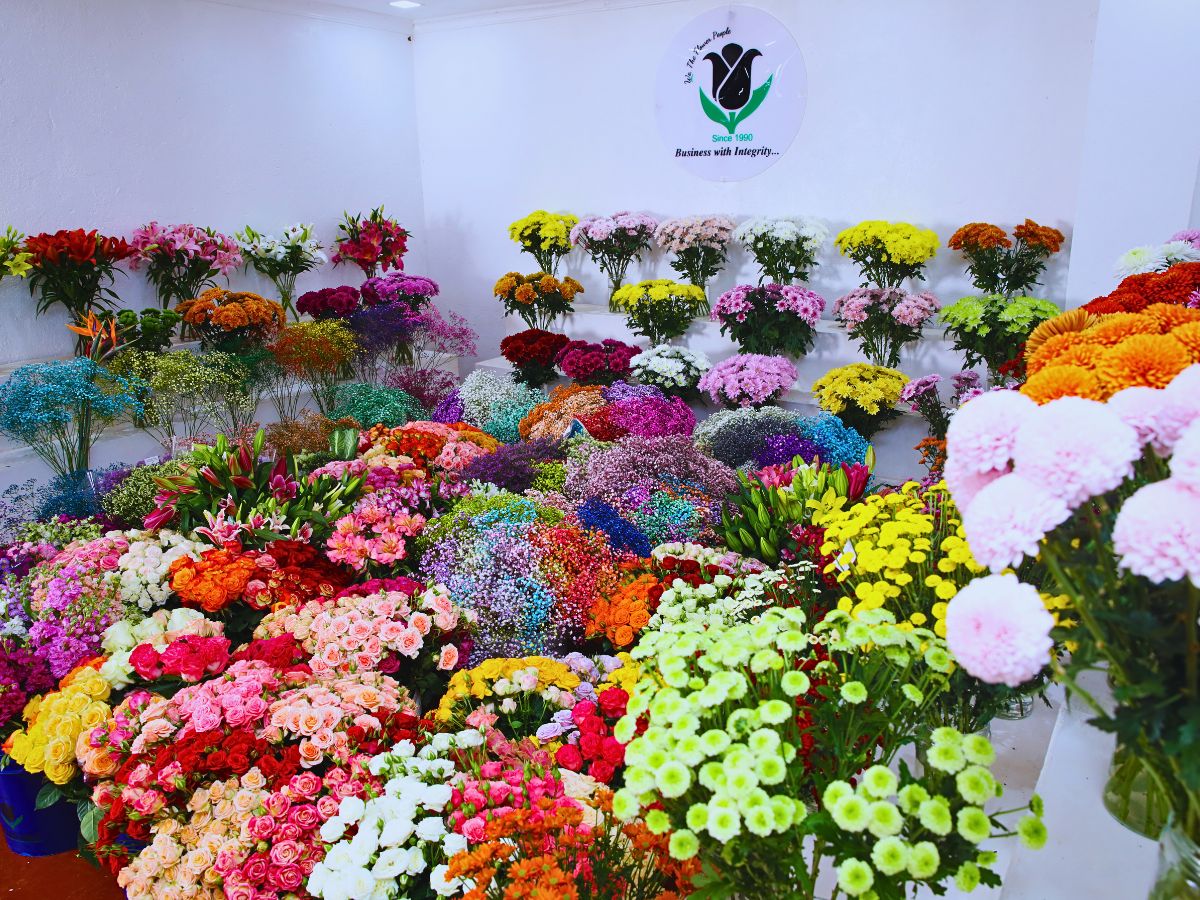
The Fairtrade framework that played a role in initiating this transformation continues to ensure that benefits reach right past the farm gates as premium payments, as noted, fund community healthcare, social amenities, and education programs. The improved working conditions contribute to better health outcomes for employees and their families, and the complete traceability required by Fairtrade standards means every flower stem sold has a story of responsible floriculture practices that consumers can trust.
Photos by Nelion Flora Ltd.

